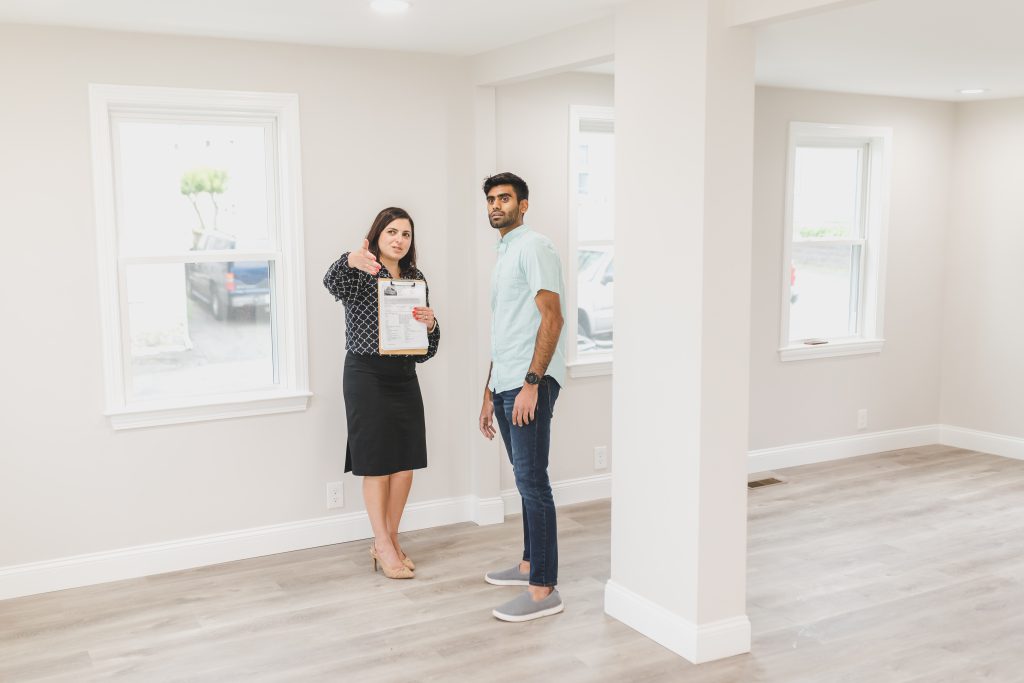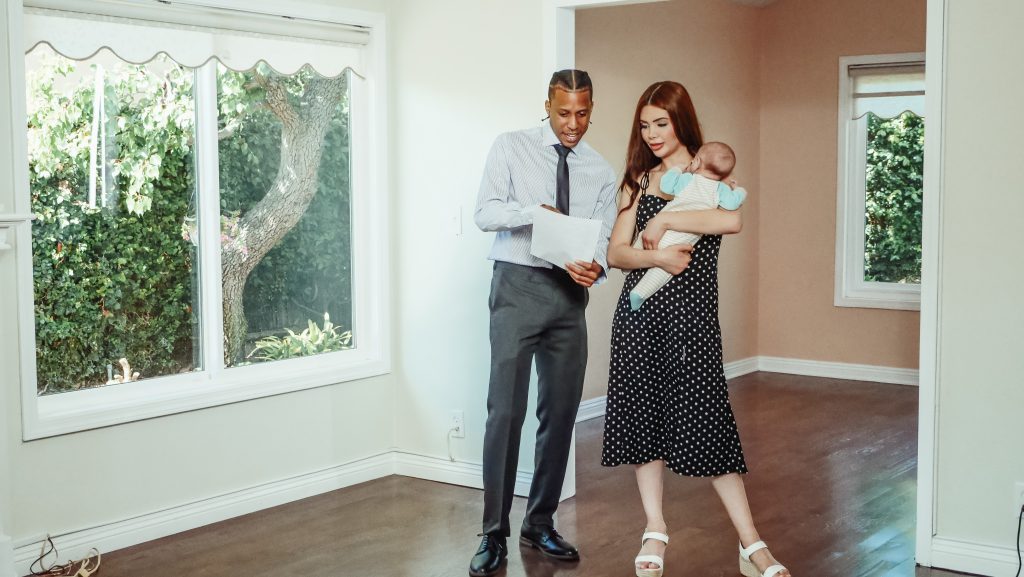Gazumping: What is it and how to avoid it

It is a nightmare for many prospective home buyers. You put in an offer for your dream property, and it gets accepted. Then, as you draw ever nearer to the completion day, the seller or the estate agent contacts you to tell you that another higher offer has been put in, and the seller is pulling out of your deal.
This, in a nutshell, is gazumping. The word ‘gazumping’ is thought to be derived from the Yiddish ‘gezumph,’ meaning to overcharge or cheat. This is a fitting derivation, as any buyer who has ever been gazumped will undoubtedly feel cheated by the seller’s actions.
Although gazumping is legal and can happen to anyone, there are several things you can do to help minimise the costs and try to avoid it altogether.
We will look at gazumping, find out exactly what it is, how it can happen, and what you can do to avoid it.
What is gazumping?
Gazumping is when a property seller accepts an offer and then goes back on the original buyer’s agreement and accepts a higher offer from another buyer. Gazumping can also mean that the seller verbally agreed to a deal on the property and then raised the price at the last minute.
In both scenarios, the buyer is put in a bad situation as they are either forced out of the deal and have to return to searching the property market, or they will end up paying more for a property than they initially bargained for.
So let’s jump in and find out whether or not gazumping is legal in the UK.
Is gazumping legal?
Gazumping is technically legal in the UK, though it is an ugly practice that is frowned upon. Due to different laws, it is far less common in Scotland than in England and Wales.
In England and Wales, gazumping is made possible because a buyer’s offer is not legally binding, even if the seller has accepted it until contracts are exchanged. When an offer is accepted on a property, the buyer will not normally have commissioned a survey or performed any relevant legal checks. Purchase offers are made ‘subject to contract,’ so until any contracts are exchanged, both parties are within their right to pull out. If the seller receives a higher offer within that time, they may withdraw from the deal and gazump the property.
The Scottish system of conveyancing makes gazumping a rare practice. Buyers must either carry out a survey before making a bid or make an offer ‘subject to survey’ rather than ‘subject to contract.’ The agreement becomes binding when the seller’s solicitor signs off an acceptance of the buyer’s offer. If the seller then attempts to gazump, their solicitor will refuse to act for them as this would constitute professional misconduct.
What is gazundering?
When property prices fall, gazumping becomes rare as it is a buyer’s market. This then opens up the way for ‘gazundering,’ which is the opposite of gazumping. Gazundering is when the buyer waits until the last moment and then lowers their offer for the property.
Why have I been gazumped?
You get gazumped when the seller of a property you want to buy has accepted your offer, only for them to receive and accept a higher offer from another buyer. While sometimes gazumping is just down to bad luck and timing, it can also happen if you move too slowly in the sale.
If a seller accepts your offer on a property, try to move forward as quickly as possible once your offer has been accepted to reduce your chances of getting gazumped.
You can also get gazumped by unscrupulous estate agents. Although this is rare, it can happen, and we will explore it in greater detail later.
Will I lose money if I am gazumped?
If you get gazumped, you may well lose money. Any money you have spent on surveys or local conveyance searches will not be retrievable. You can only reclaim any of this money if the contracts have already been signed.
If you haven’t paid for surveys or searches, you are unlikely to lose any money unless you have paid additional fees (for example, to a solicitor). However, that doesn’t take away from the upset and frustration caused by the seller pulling out of a deal at the last minute.
So whether you have invested in the property or not, you should take all possible steps to make sure your chances of getting gazumped are kept to a minimum.
Can estate agents stop gazumping?
Estate agents cannot do much to stop gazumping. They may have an anti-gazumping policy that says they will take the property off the market as soon as an offer has been accepted. However, estate agents are bound to inform their clients if another higher offer has been made on their property, and it is up to the seller to decide whether to accept this new bid or not.
There have even been claims that some estate agents encourage gazumping as they want to make more money. However, it is unlikely that this is a regular practice because estate agents want to build a good reputation amongst both buyers and sellers.
Some very dodgy estate agents may also invent a higher offer from a fictitious bidder, forcing you to increase your offer. If you have had your offer accepted and another offer comes along, ask to see proof of the offer in writing to confirm that it is genuine. Again, this is unlikely to happen, but it is good to be prepared if it does.
How to avoid being gazumped
Sometimes there is nothing you can do about getting gazumped. However, even in these instances, there are measures you can take to ensure any costs caused by the gazumping are limited.
Here we will take a look at some of the best things you can do to avoid being gazumped.
Get insurance
As we have seen, gazumping is legal, and there is little you can do if it happens to you. However, you can get insurance to protect you financially against such an event.
Home Buyers’ Protection Insurance protects you if you get gazumped. It allows you to claim back some of your survey, conveyancing costs, and any other fees you may have paid while buying the property.
Be prepared and move quickly
Before you buy a property, you should have everything within your remit prepared, so there is no delay on your side that could leave time for another buyer to swoop in and put in a higher offer.
Make sure you have a mortgage agreement in principle in place. You should also have a solicitor and all the necessary documentation lined up.
Furthermore, it would help if you moved as quickly as possible once the wheels are in motion. Keep in close contact with your mortgage broker and conveyancing solicitor so you know they are doing everything they can to move toward closing the deal. Respond quickly to any requests for information or documentation.
Ask the seller to take the property off the market
Once you have made an offer and it has been accepted, you can request that the seller takes the property off the market. The seller is not obliged to do this and may be reluctant to do so in case a better offer comes in.
However, it is worth asking them anyway, as once the property is no longer advertised, there is a much smaller risk of you being gazumped.
Get along with the sellers
Making an effort to get to know and get along with the sellers is a good idea if possible. It shows them that you are a serious buyer who is keen on the property, and they are more likely to want you to move into their house once they have vacated it.
Although sellers want to get a good deal, their sentimental attachment to a property and area shouldn’t be discounted. People want to know that their house and the neighbourhood will be passed on to nice, reliable inhabitants.
Get a lock-out agreement
A lock-out agreement (also known as an ‘exclusivity agreement’) is a contract between a seller and buyer that states the buyer has the exclusive right to buy the property within a particular time frame.
The seller has to agree to sign such a contract, but it is also a good way of showing them that you are serious about your offer. A lock-out agreement is then legally binding for the period that the contract covers.
If you are interested in getting a lock-out agreement, you should ask your solicitor for more details.
What to do if you’re gazumped

If you get gazumped, you have two options: pull out of the deal or make a higher offer.
Unfortunately, if you make a higher offer, you are playing into the hands of the seller. You’ll also need to consider other cost increases, such as an increase in stamp duty.
However, you may reason that this is your best option if you need to move forward with buying a house. You need to check that your mortgage broker will offer you a mortgage at the new price and that you have any extra money required for the deposit.
If you pull out of the deal and don’t have Home Buyers’ Insurance, you will lose any money you spent on surveys and conveyancing. However, it also means you won’t have to spend more on the property than you would have liked and don’t risk going over your budget.
Summary
Gazumping is when a property seller decides to pull out of a deal with a buyer as they have another buyer who has offered them more money. Although it doesn’t happen often, it occurs frequently enough that you should be aware of how to prepare yourself in the event of getting gazumped.
Gazumping is legal in England and Wales, though laws in Scotland make it more of a rarity. However, there are several things you can do to ensure your chances of getting gazumped are reduced and to limit the costs and impact that the process will cause you. Follow our recommendations above to make sure you are well prepared for such an event.
Also read:
Is it a legal requirement to have Home & Contents insurance?
Where to start with a house extension?
Getting your home ready to sell
What happens on completion day





